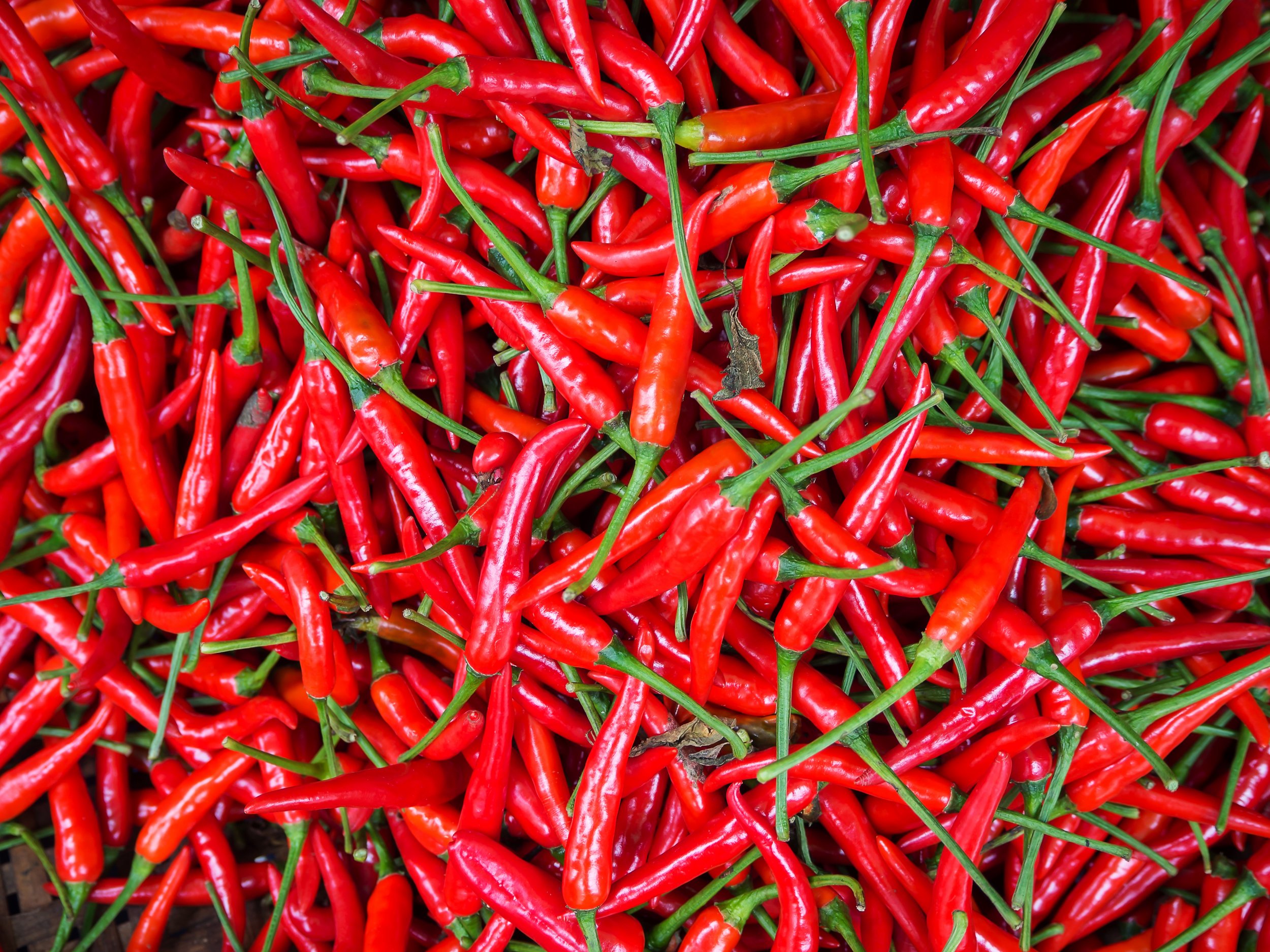
Scientists believe the chemical which gives chili its spicy kick could one day be developed into a drug to treat lung cancer. The study focused on the effects of the compound capsaicin on the lung disease adenocarcinoma, which accounts for around 40 percent of all cases of lung cancer.
Study co-author Dr. Jamie Friedman of the department of Biomedical Sciences at the Joan C. Edwards School of Medicine, Marshall University, told Newsweek: "The ability of cancer cells to spread to distant sites—a process called metastasis—is responsible for the deadliness of this disease.
"Once a cancer has spread to secondary locations it is difficult to treat. Any novel therapy to combat metastasis could be of great use for treating lung cancer patients. What is exciting about our study is that capsaicin is a natural compound being used as an anti-metastatic agent."
The authors of the new study wanted to build on existing evidence showing capsaicin appears to stop the spread of melanoma, prostate, and a cancer of the connective tissue of the bile ducts.
But capsaicin can cause nasty side effects including skin redness, nausea, intensely teary eyes, vomiting, abdominal cramps, and burning diarrhea. So the team compared whether compounds similar to capsaicin (capsiate and capsiconiate) had the same cancer-fighting powers but without the side effects.
Tests on lung cancer cells showed capsiate stopped cancer cells from invading other cells—the process just before metastasis—whereas capsiconiate had no effect. Meanwhile, experiments in mice revealed animals who ate capcaisin had fewer metastic cancer cells compared with mice who didn't take the compound.
Capcaisin seems to work against this common form of lung cancer by stopping a protein called Src from activating.
"Current studies in our lab have shown that capsaicin has the ability to sensitize lung cancer to the effects of chemotherapeutic agents," explained Friedman. "Our future studies are aimed at designing capsaicin analogs which will be non-pungent and retain the anti-tumor activity of capsaicin."
The researchers were inspired to study capsaicin because observational studies in the past have shown that countries such as Thailand and India, where diets traditionally consist of spicy foods, have lower incidence of lung cancer.
"This observation triggered ideas that maybe the spicy food consumption had something to do with these lower cancer incidences," said Friedman.
One day, the team hopes capsaicin could be developed into anti-metastic treatments for lung cancer, to be used alongside other therapies.
The findings were presented at the American Society for Investigative Pathology annual meeting during the 2019 Experimental Biology meeting. The research therefore hasn't been published in a peer-reviewed journal.
Martin Ledwick, head information nurse at the charity Cancer Research UK, told Newsweek: "It's always good to see new research being carried out that might one day improve cancer treatment.
"Preventing cancer invading and spreading is a key area for cancer research. This study may give scientists further leads to try and develop new treatments that stop this happening. However, this is early lab-based research and it isn't known yet if or how it might translate into being a useful treatment."
Uncommon Knowledge
Newsweek is committed to challenging conventional wisdom and finding connections in the search for common ground.
Newsweek is committed to challenging conventional wisdom and finding connections in the search for common ground.
About the writer
Kashmira Gander is Deputy Science Editor at Newsweek. Her interests include health, gender, LGBTQIA+ issues, human rights, subcultures, music, and lifestyle. Her ... Read more
To read how Newsweek uses AI as a newsroom tool, Click here.








